Before the Russia-Georgia war, the Discovery Institute’s Real Russia Project, which relative to most members of the U.S. foreign policy commentariat provides a decidedly contrarian view of Russia, wrote a short pamphlet called “10 Reasons Americans Should Care About Russia.” According to the project’s Yuri Mamchur, the report remains valid. “Perhaps as tempers cool, people of good will can consider what is at stake; what there is to gain, and what there is to lose,” he writes. Here’s the full report, and here’s a list of the 10 reasons: 1. Russia is the world’s largest country, straddling Europe, China and […]
Russia Archive
Free Newsletter
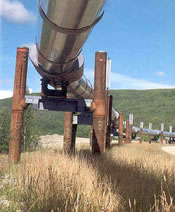
While control over routes for the export of oil and gas to Western markets was clearly not the primary cause of the recent hostilities between Moscow and Tbilisi, the vital role of the Caucasus as an energy transit route nevertheless cannot be ignored in the context of Russia’s increasingly tense relationship with the United States and its European allies. The collapse of the Soviet Union in the 1990s led to the formation of several breakaway republics in the Caspian region, an energy-rich area which had been off limits to Western investment. That these newly formed states with substantial reserves of […]
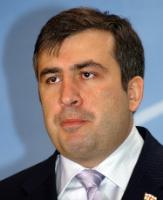
GEORGIAN BLAME GAME . . . — Georgian President Mikheil Saakashvili may excoriate Russia for invading his country in interviews with Western media — such as his Financial Times interview Monday — but for local consumption he does not spare the West from responsibility for Georgia’s current crisis. In a major speech in Tbilisi last week, he said the Russian military build-up in South Ossetia was well underway before Georgian forces attacked the breakaway province, but Western leaders wouldn’t believe him, and Western intelligence failed to detect it. “When we were asking our Western partners [read: the United States] did […]
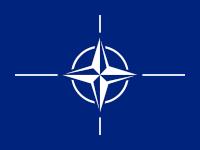
On Aug. 21, the Russian Defense Ministry announced its decision to halt military cooperation with NATO members. The Russian announcement comes only a week after Moscow tried to convene a special meeting of the NATO-Russia Council to discuss the situation in Georgia, but was rebuffed by the alliance. Instead, NATO foreign ministers met independently of Moscow on Aug. 19, when they threatened to curtail military cooperation with Russia. When asked about the Russian decision, U.S. National Security Council spokesman Gordon Johndroe observed that, “For all practical purposes, military-to-military cooperation had really already been ended with the Russians. I can’t imagine […]
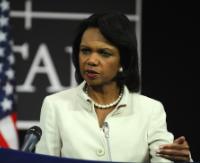
When all was said and done, Secretary of State Condoleezza Rice got scant comfort from NATO on her mission to press punitive action against Russia following its armed incursion into Georgia — and its slowness in leaving it. True, the North Atlantic alliance foreign ministers meeting in Brussels Tuesday did manage to adopt a united position — but at the price of tepid language and of retaliatory steps that fell short of what the Bush administration had urged. President Dmitry Medvedev signed an agreement that requires Russian troops to return to positions held before the fighting broke out on Aug. […]
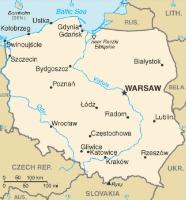
Earlier today, U.S. Secretary of State Condoleezza Rice and Polish Foreign Minister Radek Sikorski signed an agreement negotiated last week that will position 10 American-controlled interceptor missiles at a U.S.-manned missile defense base in Poland. Both governments reached the deal despite strenuous Russian opposition to the move. During the past year, Russian political, military, and other leaders have stridently denounced American efforts to establish a comprehensive ballistic missile defense (BMD) network that extends beyond the United States. In particular, Moscow has objected to U.S. plans to deploy ballistic missile defense systems in Poland and the Czech Republic to supplement the […]
To continue a theme I’ve touched on in a few recent posts, Daniel Drezner’s comments (via the 8th Circle) on Georgia, Russia and NATO expansion are worth reading. Drezner cautions against believing that encroachment of Western influence and institutions like NATO and the EU is the primary cause of Russian coercion of its near abroad: . . . I’m not sure that realist opposition to NATO expansion is vindicated by the Georgia invasion. I presume their argument is that NATO expansion somehow triggered the security dilemma, which led to Russia’s current revanchism. The thing is, I wrote half a book […]
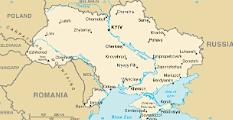
The War in Georgia has seriously exacerbated relations between Russia and Ukraine’s pro-Western government. On Aug. 12, Ukrainian President Victor Yushchenko joined the leaders of four other former Soviet states in Tbilisi to show solidarity with Georgia and its embattled president, Mikheil Saakashvili. Yushchenko told the crowd that had assembled in Tbilisi’s central square: “You will never be left alone! . . . We have come to reaffirm your sovereignty, your independence, your territorial integrity. These are our values. Independent Georgia is and independent Georgia will always be!” The following day, President Yushchenko boldly imposed severe restrictions on the movement […]
Following up on my post about McCain’s response to the Georgia war, Andrew Sullivan more elegantly makes the point that I was clumsily attempting to make in referencing that Belgravia Dispatch post on Wednesday. Here’s Sullivan: No one should doubt that McCain’s heart is in the right place. McCain long championed the persecuted people of Iraq; and he came to the defense of the beleaguered Bosnians. He is passionate about Burma and Darfur. You name a lost cause and he will rally to it. . . . His position on Georgia makes much more sense if you see it in […]
Jeez. I figured that the opening of the Olympic Games meant I could sneak in a week of intermittent posting, and instead war breaks out in Europe. Obviously, with resident Russia specialist Richard Weitz around, I assumed WPR readers would be well informed, and I wasn’t wrong. Setting aside the actual issues at dispute in the Russian-Georgian conflict, when I saw the first reports of the fighting, I couldn’t help but think that Georgian President Mikheil Saakashivili had done the Russians an enormous favor in provoking an armed conflict, and this paragraph from Richard’s piece explains why: By punishing Georgia […]

August is when official Washington shuts down and heads off for vacation. Congressmen and senators travel to their districts to politick, especially in these even-numbered years, and presidents travel to their ranches or beach houses or, this year, to the Olympics. But that wasn’t the case during the administration of George H.W. Bush. In fact, it was during these dog days of summer that the elder Bush was busiest. The next president could learn a thing or two from the 41st — about what to do and what not to do. It’s regrettable that Bush’s presidency is usually mentioned in […]
For those looking to make sense of the Russia-Georgia conflict, we’ve published three commentary/analysis pieces on the subject today. —Richard Weitz looks at Moscow’s motives; —Frida Ghitis says Russia is sending a message; and —Peter Doran says Moscow has been allowed to play both mediator and spoiler.
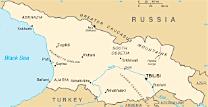
The outbreak of hostilities between Georgia and Russia demonstrates the speed with which Eurasia’s frozen conflicts can rapidly transform into destabilizing shooting wars. Indeed, the fighting in South Ossetia highlights the danger of allowing these conflicts to simmer under the veil of international management. Over the last decade, the United States and international partners failed to directly challenge the logic of Russia’s dual status as both mediator and spoiler in the Georgian peace process. In the current environment, this failure has allowed Moscow to claim the role of peacekeeper as it pursues its own agenda in the Caucasus. For almost […]

The political and historic intricacies of the war raging between Russian and Georgian forces in South Ossetia are rather complicated, but the message fired off by the relentless Russian onslaught is as clearly discernible as the blast of a cannon: The territories of the former Soviet Union will answer to Moscow — whether they want to or not. That smoldering salvo has its intended audience, more than anywhere else, in those former Soviet territories: in lands that include Georgia, of course, but also other former Soviet republics than have worked to moved away from Moscow’s influence. The message is meant […]

Although the precise catalyst for the war between Russia and Georgia is unclear, the escalation was almost inevitable given the years of tension and the diplomatic stalemate over the status of the pro-Russian separatist regions of Abkhazia and South Ossetia as well as other fundamental issues such as Georgian aspirations to join NATO. The question was always whether Moscow would exploit its local military superiority to compel Georgia’s formal dismemberment or would instead hold the threat of armed interventions in reserve in an attempt to influence Georgian foreign policy without incurring the damage to Russian-Western relations that might ensue from […]
Despite the steady stream of suggestive reports about Russia’s desire to regain a military presence in Cuba, here’s what a Cuban diplomat had to say about the matter: However, a high-ranking Cuban diplomat said on Saturday that the Cuban leadership had no intention of resuming military cooperation with Russia, especially after the surprise closure of the Lourde’s listening post. The electronic monitoring and surveillance facility near Havana at Torrens, also known as the Lourdes facility, the largest Russian SIGINT site abroad, was shut down in October 2001 by then-president Vladimir Putin. “We were not even notified about the decision [by […]
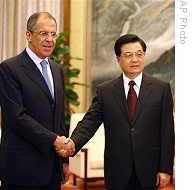
On July 21, Russian Foreign Minister Sergei Lavrov and Chinese Foreign Minister Yang Jiechi signed a treaty in Beijing that formally ended their four decades’ old border dispute. The accord finally demarcated the last pieces of their 4,300-km (2,700 mile) frontier, the longest land border in the world. The deal ended a confrontation that in 1969 led to a brief shooting war between the two countries over some contested islands along the Amur River. Since the Soviet Union’s disintegration, Russian and Chinese leaders have made resolving the contested border issue a priority in their relations — for undersatndable reasons Russia’s […]
